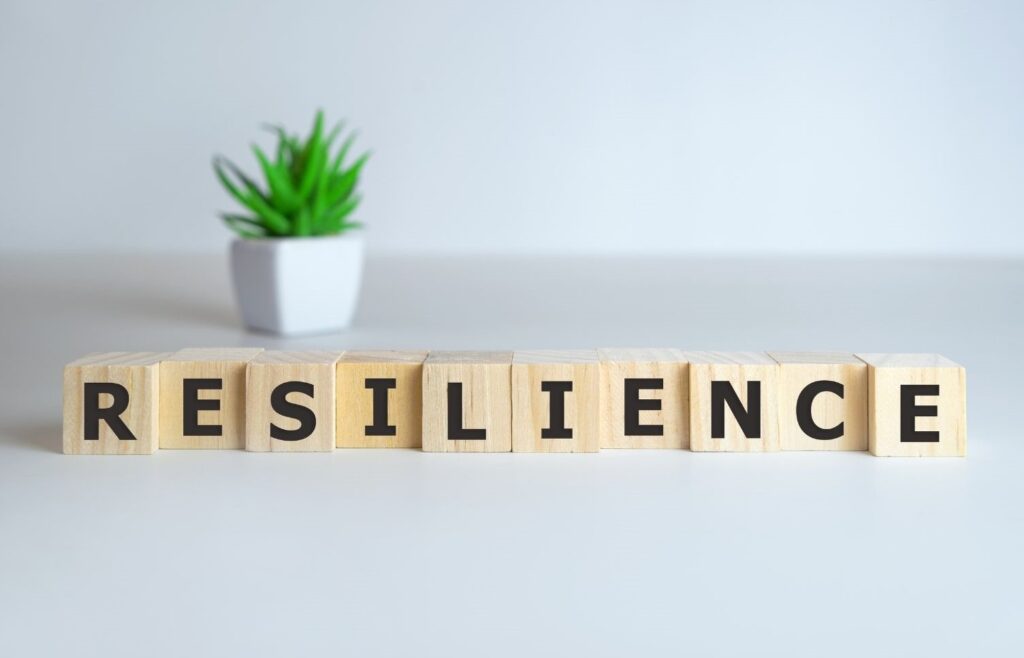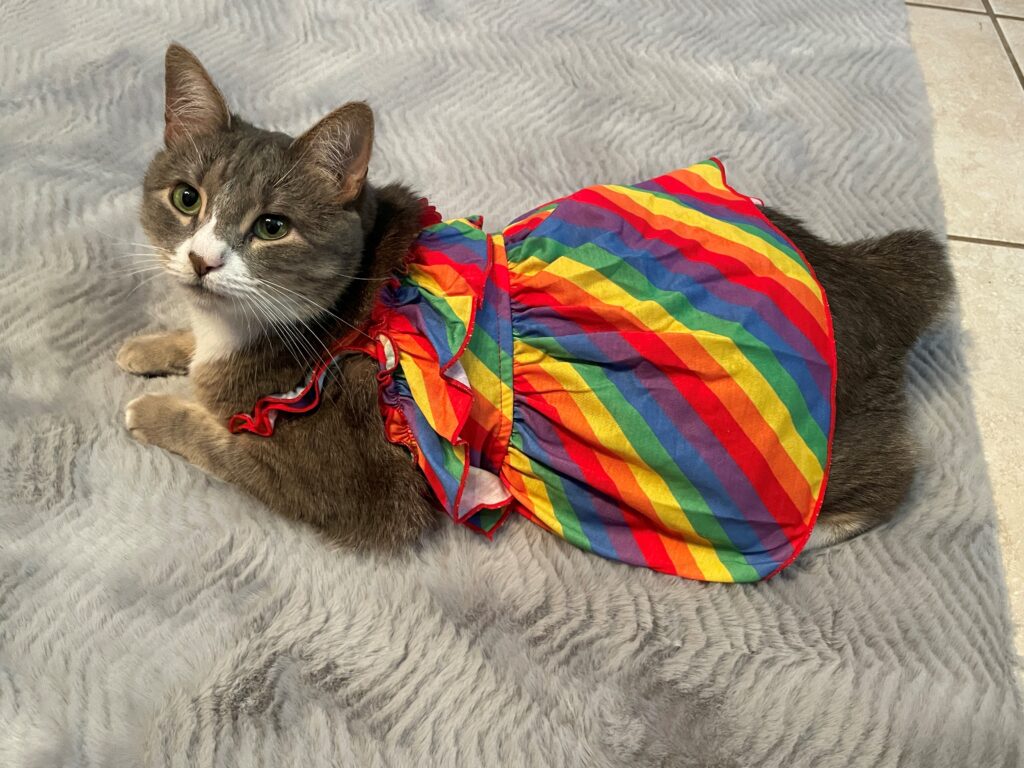Reflecting on our achievements does not come naturally for most of us. The hustle and bustle of the holiday season, work, family, and other responsibilities typically take over. Have you ever felt like you were living on autopilot? I have. Sometimes, I get so caught up in my routine that I lose track of all I have accomplished during the year. It feels like I blinked, and suddenly, it is December, and another year has passed by. This holiday season, I want to reflect on the achievements and joyous moments I had in 2023.
Continue readingCategory Archives: Multiple Sclerosis Association of America Guest Bloggers
Celebrando el éxito y la alegría de la temporada: reflexionando sobre los logros a pesar de los desafíos
Para la mayoría de nosotros reflexionar sobre nuestros logros es algo que no hacemos con tanta frecuencia. El ajetreo de la temporada navideña, el trabajo, la familia y otras responsabilidades suelen tomar el control. ¿Alguna vez te has sentido como si estuvieras viviendo de forma automática? Yo sí. A veces, me dejo llevar tanto por mi rutina, que pierdo la noción de todo lo que he logrado durante el año. Se siente como si parpadeara y, de repente, es diciembre y ha pasado otro año. En estas fiestas, quiero reflexionar sobre los logros y los momentos alegres que tuve en el 2023.
Continue readingPrioritizing Self-Care
By Stacie Prada
Each year I approach the holiday season with excitedly high hopes and an underlying worry for the season’s demands. I know I need to be even more attentive to my health than usual to best navigate the next couple of months. Yet most years I put commitments and other people ahead of my needs. It leads to overwhelm and exacerbates my MS fatigue.
Self-care is an individual decision and responsibility, and it’s within our control. So, what makes it so hard? Often, it’s the abundant needs of family, friends, profession, and self-imposed expectations competing with limited time, money, and energy to meet those needs. The demands of us and by us can be more than humanly possible to meet. So where do we draw the line?
Continue readingWhat MS Has Taught Me
By Suzanne Marriott
Being my husband’s caregiver throughout his years of living with MS taught me a great deal. I discovered hidden internal resources and developed new skills that stretched my understanding of what I could do.
Through embracing the challenges of caregiving, I learned to trust myself to do what had to be done to care for my husband, Michael, despite my self-doubt and lack of experience. For example, in the latter stages of Michael’s disease, I learned to accomplish procedures that only an RN could comfortably do, such as administering IV medications and changing his Foley catheters while maintaining a sterile environment. As his condition worsened, Michael came to trust me more and more, and I was able to ensure that he received the right medical care and the right follow-up—from me.
Continue readingResilience Is Your Superpower
MS is debilitating and relentless, wreaking havoc on our bodies and minds. It is frequently a diagnosis that causes fear, confusion, and discomfort in so many ways. The first thing that I think of when I speak with a person with MS is the word resilience.
If there is one thing I have learned about people with MS, it is that they are resilient. They have learned to withstand difficulties and adapt to situations that many are unaware of. The courage those with MS show every day leaves me baffled. It takes strength to deal with the physical and “invisible” symptoms of MS, and educating ourselves and those around us about this disease is just as powerful. The MS journey is one of ups and downs, trial and error, and acceptance.
Continue readingThe Fear
By Chernise Joseph
Since it’s the spookiest of months, let me get right to the point: MS has taught me how to be afraid. To be very, very afraid. As big and as intimidating as that word can truly be, I don’t want it to come across as multiple sclerosis has simply scared me away from living as that isn’t the case at all–if anything it’s the exact opposite.
Multiple sclerosis is a funny thing, especially the sort I have. I can go weeks, months, even years, without any relapses, but the threat of them still lurks over my head like a storm cloud. What if I overdo it today and trigger a relapse? What if the weather is simply weather-y and I’m in relapse-land? What if, what if, what if.. That is what scares me the most about MS. The what ifs.
Continue readingEmergency Preparedness – Think Local
Emergencies occur daily, and they can range from mild inconvenience to life-shattering events. There is tons of information available for being prepared for emergencies. Lists of what to include in emergency kits are thorough and excellent for helping each of us have what we need in case of emergency. Pages dedicated to people who are medically vulnerable and disabled are wonderful for listing what to consider for ourselves and those we care for.
Continue readingThe Best Laid Plans
By Suzanne Marriott
Living with MS can be challenging, but planning for an emergency while dealing with MS can be overwhelming, and sometimes “The best-laid plans of mice and men often go awry,” to loosely translate Robert Burn’s poetic admonition. That’s what happened to us when I thought I had planned for every contingency and possible emergency before we headed off on a trip from our San Francisco Bay Area home to San Diego for a little R&R.
Continue readingFlooded
By Chernise Joseph
If you’re reading this, I know you are already familiar with some type of ‘emergency’, perhaps fortunately or unfortunately depending on your perspective. Multiple sclerosis in itself has thrown us into a world of constant emergencies, however planning for them is an entirely different ball game that can (and will) make life so much easier.
Let me tell you a little story of my experience with emergencies in the last eighteen months or so. Last year, I took a ‘sabbatical’ and decided to sell everything, leave my home in Texas, and drive over a thousand miles up to Yellowstone National Park. No, it wasn’t because of the show–I hadn’t even heard of ‘Yellowstone’ until I started working there. I just wanted a fresh start and I had never been. Seeing The Tetons in person had been on my bucket list since high school, so it was true nirvana to stand in front of mountains that looked like screen savers.
Continue readingTravel With MS
By Suzanne Marriott
` Two roads diverged in a wood and I –
I took the one less traveled by,
And that has made all the difference.
Robert Frost, The Road Not Taken
My husband, Michael, had MS, but that didn’t stop us from doing the things we loved, and the most important was travel. The challenge was learning how, not if, we could do it. Of course, we had to make many changes and accommodations in order to maintain this lifestyle.
When Michael was still walking, using his two hiking poles for balance, we bought a small, used RV and traveled up the coast of California, our home state. It was summer and I was free from my job as a teacher. As my husband’s caregiver, I made sure our little home on wheels was well stocked with all the things we would need, including all the paraphernalia that MS required.
But the day we were to leave, it was too hot and Michael realized he couldn’t drive in that heat. So our first accommodation was to embark on our trip in the evening, when it was cooler. As a former truck driver, Michael was used to driving at night, so off we went, enjoying the moonlight and a dearth of traffic.
With advance reservations secured, we stayed in California state parks in the parking areas authorized for persons with disabilities. This meant we were close to the toilet and shower facilities. All states have qualifications for their state parks’ disability status which provides many advantages, such as park-use discounts. For California information can be found at https://www.parks.ca.gov/30959.
There came a time when Michael could no longer walk. His HMO provided him with a power wheelchair, and we bought a used van with hand controls and a wheelchair ramp. Having the van meant that Michael was able to continue driving even as his disability increased. With some seat switching, I could also drive when needed. Soon we begin taking advantage of sightseeing closer to home. Living in the San Francisco Bay Area, this included the wine country, San Francisco itself, and the nearby coast and parklands. Sometimes we made longer trips, staying in motels and inns with accessible rooms. As always, the key was preparation and planning ahead.
For Michael and me, travel was something we refused to give up. The challenge was always figuring out how we could continue doing the things that we loved and what modifications we needed to make. Travel allowed us to continue having joy and fulfillment in our lives. If you’re thinking of travel, remember, it takes determination, creative thinking, and planning ahead. So go for it. And have fun!







